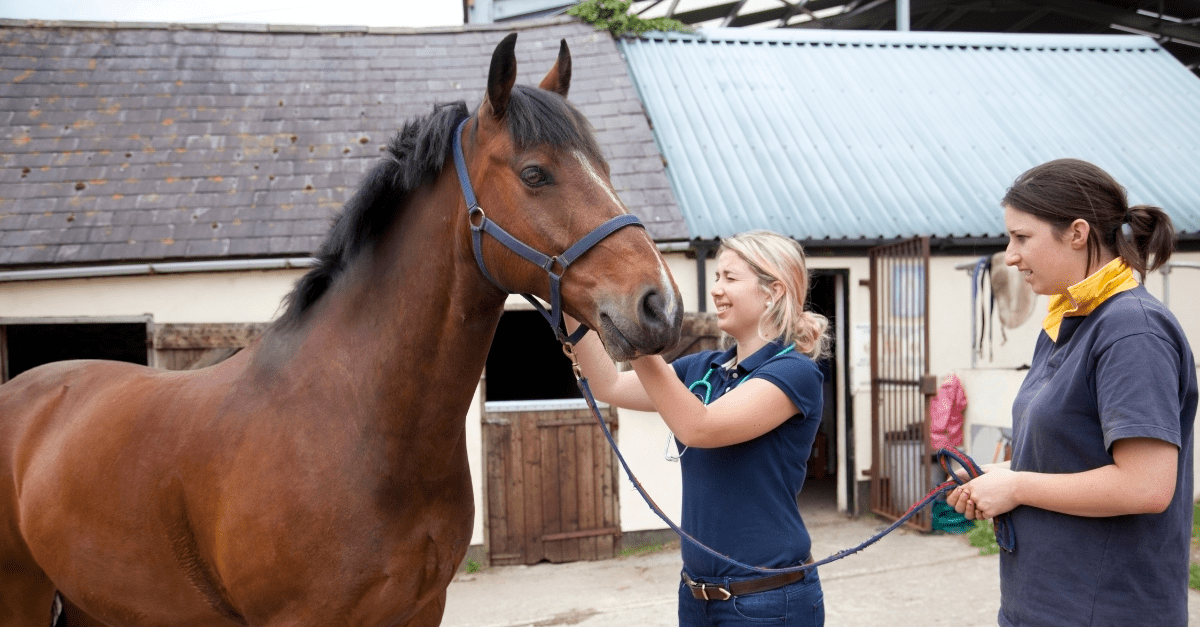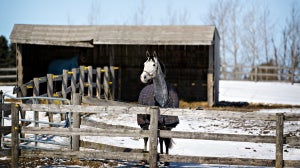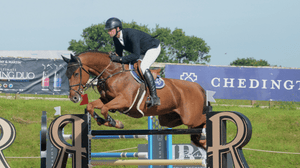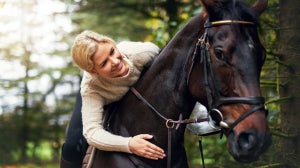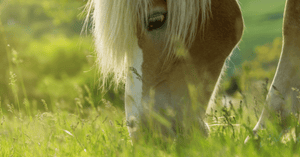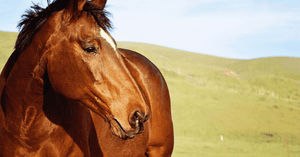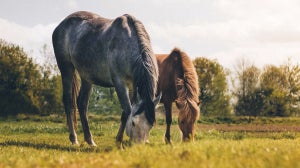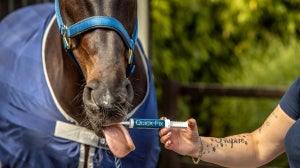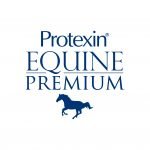
As a responsible horse owner, one of the most important aspects of horse care is ensuring that your equine companion is protected against preventable diseases.
Vaccinations play a crucial role in safeguarding your horse's health and well-being. In the UK, there are important steps and guidelines to follow when it comes to vaccinating your horse - to ensure your horse is fit and healthy, complies with competition rules and to prevent the spread of disease to other horses.
In this article, we will explore the importance of equine vaccinations and provide a comprehensive guide to help you navigate the vaccination process for your beloved horse, pony or donkey.
- What are equine vaccines?
- Why vaccinate your horse?
- Vaccines for horses in the UK
- Vaccination schedule and process
- Conclusion
What are equine vaccines?
Equine vaccines are biological preparations that contain weakened or inactivated pathogens. These vaccines are specifically created to stimulate the horse's immune system, preparing it to recognise and create a defence against specific diseases.
By introducing a harmless form of the pathogen or its antigens, vaccines imitate a real infection, triggering an immune response without causing the disease itself or harm to the animal. This means that when the real infection comes along, the body will recognise this and remove the pathogen quicker from the body, before the pathogen can cause more serious harm.
Equine vaccines are made to target various diseases that can cause horses, ponies and donkeys serious harm to their health, including tetanus, influenza, equine herpes virus and strangles.
It is important to note that vaccines do not offer 100% protection, but they significantly reduce the severity of the disease and the risk of transmission.
Why vaccinate your horse?
Vaccinations are essential for horses as they help prevent the spread of contagious and potentially life-threatening diseases. They stimulate the immune system, enabling it to recognise and respond effectively to specific pathogens so that in the long term you can be confident that your horse won’t be harmed by one of these diseases.
By vaccinating your horse, you are not only protecting its health but also helping the overall equine population's well-being by reducing the risk of disease transmission, such as at competitions, horse events and on yards.
Vaccines for horses in the UK
In the UK, there are several vaccines available to protect equines against various diseases. The most common vaccines include:
1. Tetanus: Tetanus is caused by the endotoxins produced by the bacteria Clostridium tetani, which is present in soil and can enter the body through wounds or punctures. Vaccination against tetanus is highly recommended, as this disease can be fatal. The primary vaccination course usually involves two initial doses followed by a first booster after 12 months, with regular boosters every two years thereafter.
2. Equine Influenza: Equine influenza is a highly contagious respiratory disease that can cause high fevers, coughing, nasal discharge and other symptoms. Vaccination against equine influenza is a requirement for many equestrian activities in the UK, in particular if they are affiliated with FEI or BHA. Initially, a primary vaccination course consisting of two injections is given, starting around 5 months of age. The third vaccine is given 6 months later, and boosters are continued at least yearly. Some affiliated disciplines may want your horse to be vaccinated 6 monthly, so it is best to check with your organisational body and also with your vet.
3. Equine Herpes Virus (EHV): EHV is a viral infection that can cause respiratory disease, pregnancy issues such as abortion in mares, and neurological symptoms. Vaccination against EHV can be done for any horse but is particularly recommended for breeding mares - this may even be a requirement before going to stud. If vaccinating a pregnant mare to mitigate against abortion, the vaccination will be given at months 5, 7 and 9 of pregnancy.
4. Strangles: Strangles is a highly contagious bacterial infection that causes pus-filled abscesses around the throat area, and can have very severe complications. A new vaccination called Strangvac is now available in the UK and could be useful in certain circumstances, especially if your horse is at greater risk of strangles. Consult with your veterinarian to determine if the strangles vaccine is appropriate for your horse, and when it should be given.
Vaccination schedule and process
To ensure the best possible protection for your horse, it is crucial to follow the recommended vaccination schedule and process. Here are the general steps involved for doing this and keeping your horse fighting fit:
Consulting with your veterinarian: Begin by consulting your vet, who will assess your horse's individual needs, taking into account its age, general health, and the horse’s potential exposure risks. They’ll be able to help you develop a tailored vaccination plan for your horse.
Primary vaccination course: For most vaccines, a primary vaccination course is required, consisting of intramuscular injections. The number of doses and the time between them will depend on the specific vaccine.
Boosters: Once the primary course is completed, boosters are necessary to maintain your horse's immunity. These may be every six months, every year or every two years, depending on the vaccine, level of risk and discipline requirements. Regular boosters help reinforce the immune response and ensure continued protection against the targeted diseases.
Keeping records: It is essential to maintain accurate vaccination records for your horse. This includes documenting the dates of each vaccination, the type of vaccine given to them, and the manufacturer. These records may be required for competitions, transportation, or possibly if you ever sell your horse. The vet performing the vaccination will have to fill out these details at the time of vaccination, so always bring your horse’s passport along to the appointment.
Conclusion
Vaccinating your horse is a vital aspect of caring for your horse in the UK. By listening to the recommended steps and guidelines for horse vaccinations, you can rest assured your horse will stand the best possible chance of keeping healthy, at the same time as helping reduce risk for other horses
Vaccines offer a crucial layer of protection against preventable diseases, reducing the risk of illness and also the potential transmission of these diseases, whatever they may be, to other horses. Please discuss with your vet, who will guide you on what vaccinations your horse may need, and when they should be given.

